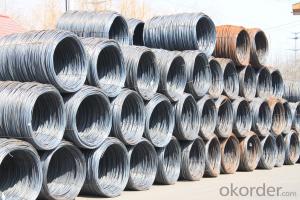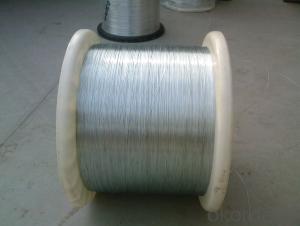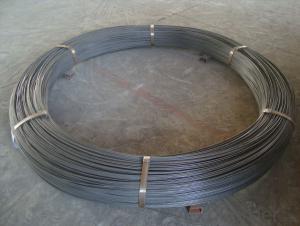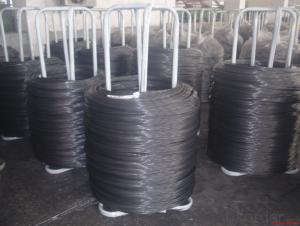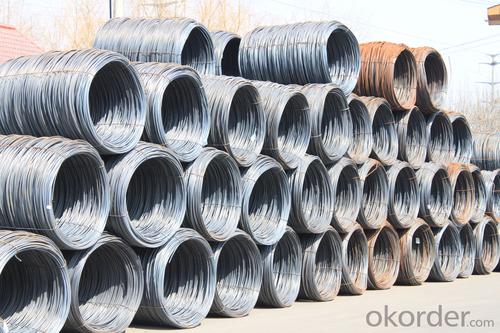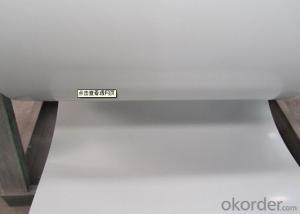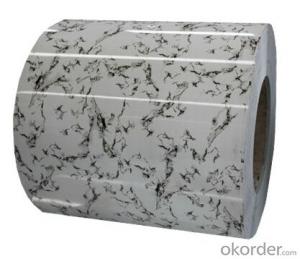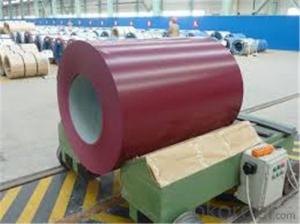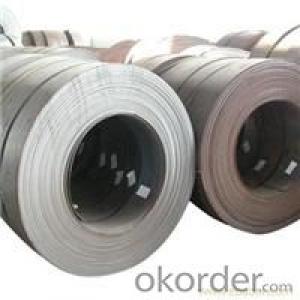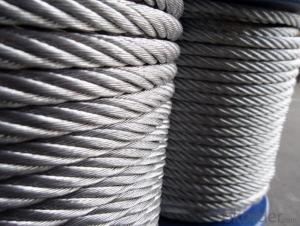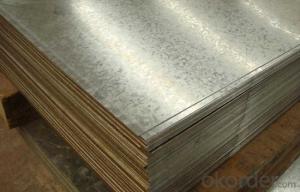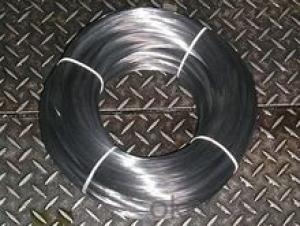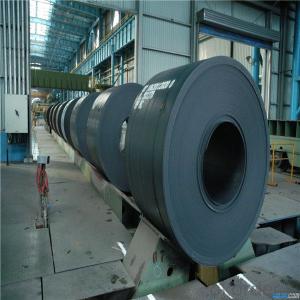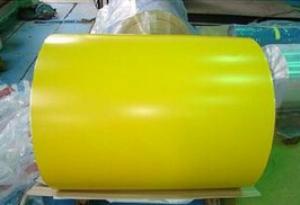High Carbon Spring Steel Wire High Quality
- Loading Port:
- Tianjin
- Payment Terms:
- TT OR LC
- Min Order Qty:
- 30000 PCS
- Supply Capability:
- 4000000 PCS/month
OKorder Service Pledge
Quality Product, Order Online Tracking, Timely Delivery
OKorder Financial Service
Credit Rating, Credit Services, Credit Purchasing
You Might Also Like
Product Information
Product Name:High Quality High Carbon Spring Steel Wire
Steel Grade: 45#,60#,65#,70#,SWRH72A,SWRH72B,80#,SWRH82B
Standard:GB4357,DIN17223,JIS G 3521
Wire Gauge:0.2-13mm
Alloy Or Not:Non-alloy
Type: Ungalvanized
Application: Making spring,mattress,wire rope
Packaging & Delivery
| Packaging Detail: | Coil Packing,Z2 Packing,Z3 Packing,Spool Packing. |
| Delivery Detail: | Within 10 days |
Product Picture
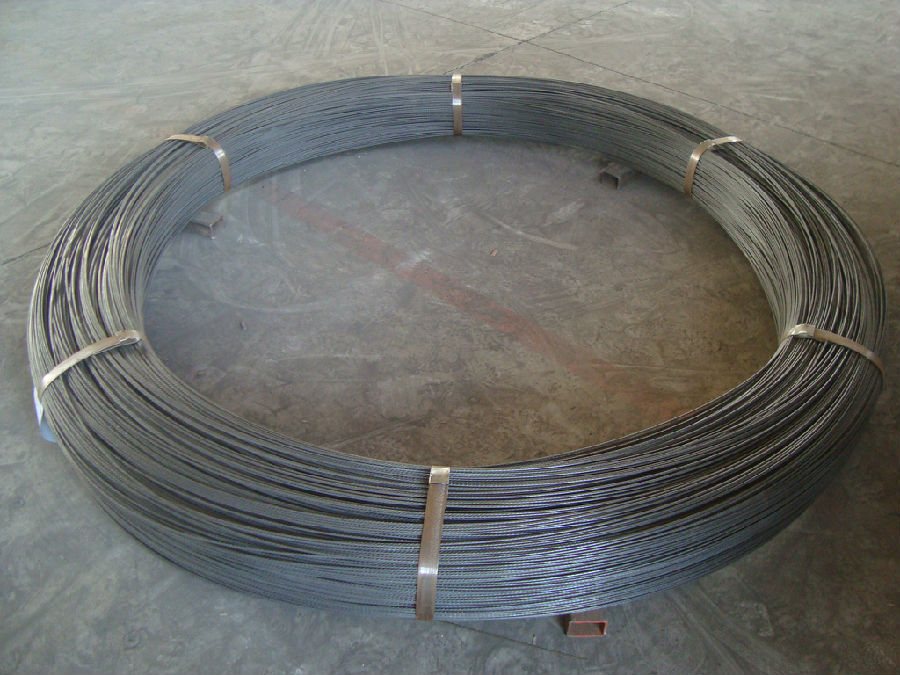
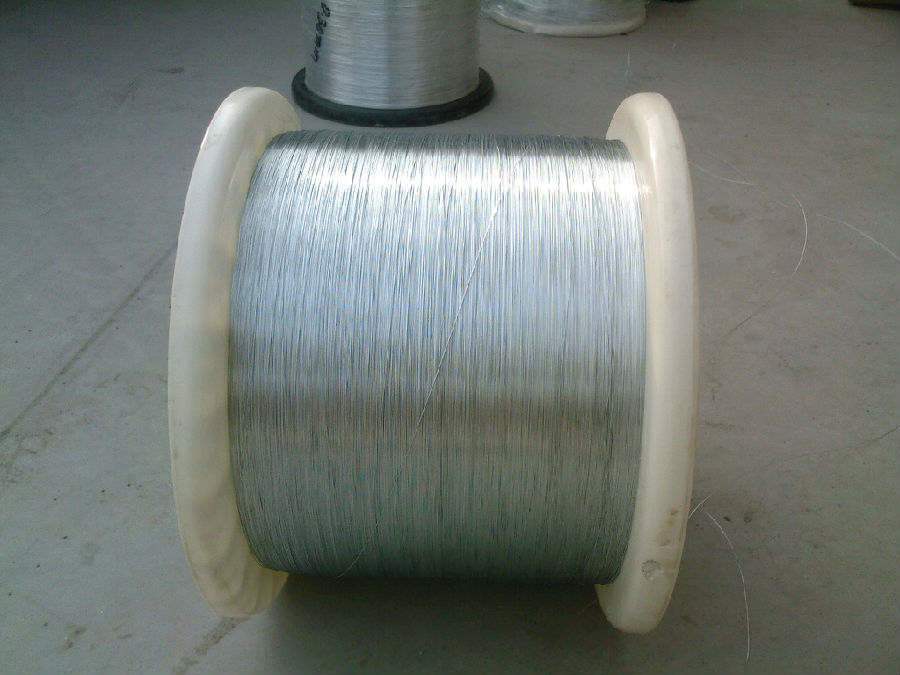
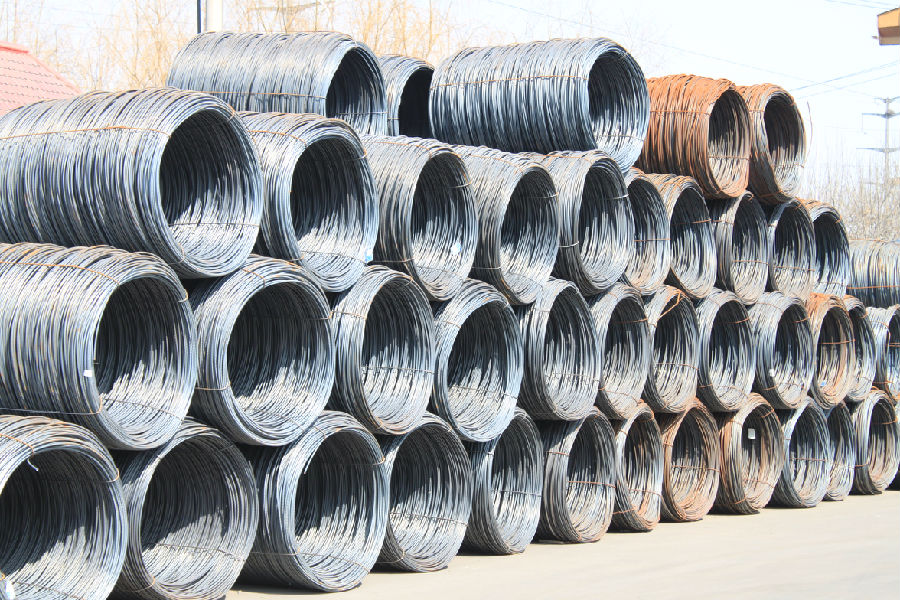
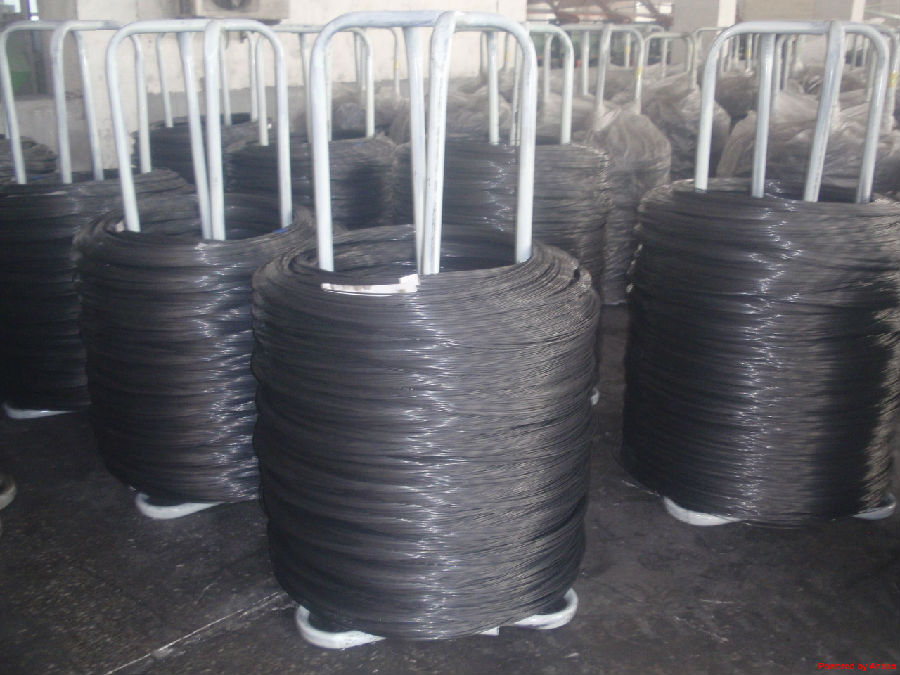
- Q: Is steel harder than iron or is iron harder than steel?Please explain... and help!Thanks
- steel is harder than iron Iron is a chemical element. It is a strong, hard, heavy gray metal. It is found in meteorites. Iron is also found combined in many mineral compounds in the earth's crust. Iron rusts easily and can be magnetized and is strongly attracted to magnets. It is used to make many things such as gates and railings. Iron is also used to make steel, an even harder and tougher metal compound. Steel is formed by treating molten (melted) iron with intense heat and mixing it (alloying) with carbon. Steel is used to make machines, cars, tools, knives, and many other things.
- Q: What are the common applications of pre-painted steel coils?
- Pre-painted steel coils, also referred to as pre-coated steel coils or color coated steel coils, are extensively utilized in a multitude of industries due to their versatility and endurance. The following are some of the prevalent uses of pre-painted steel coils: 1. Construction: In the construction sector, pre-painted steel coils are widely employed for roofing, wall cladding, and building panels. The array of colors available in pre-painted steel coils enables architects and designers to fashion visually pleasing structures. 2. Automotive: The automotive industry relies on pre-painted steel coils for fabricating car bodies, interior panels, and various other components. The corrosion resistance and superb finish provided by pre-painted steel coils make them the preferred choice in this field. 3. Appliances: Household appliances such as refrigerators, washing machines, and air conditioners incorporate pre-painted steel coils for their outer panels. The appealing colors and textures offered by pre-painted steel coils enhance the appearance of these appliances. 4. Electronics: The electronics industry also employs pre-painted steel coils for manufacturing cabinets and casings of electronic devices such as computers, televisions, and audio systems. The protective coating on pre-painted steel coils shields the electronic components from environmental factors. 5. Furniture: Pre-painted steel coils are utilized in the furniture industry for producing cabinets, shelves, and similar products. The extensive range of colors and finishes available in pre-painted steel coils enables furniture manufacturers to create visually appealing and long-lasting goods. 6. Signage and Advertising: In the signage and advertising sector, pre-painted steel coils are commonly used for manufacturing display boards, billboards, and signs. The vibrant colors and weather-resistant properties of pre-painted steel coils make them suitable for outdoor use. 7. Industrial Equipment: Pre-painted steel coils are employed in the manufacture of industrial equipment such as storage tanks, HVAC systems, and machinery components. The corrosion resistance and high strength of pre-painted steel coils make them suitable for these demanding applications. In conclusion, pre-painted steel coils find a wide range of applications in industries such as construction, automotive, appliances, electronics, furniture, signage, and industrial equipment. Their endurance, resistance to corrosion, and aesthetic appeal make them a popular choice for manufacturers in various sectors.
- Q: a concrete or steel building?also, what is the density of concrete and steel? is concrete heavier in steel for the same volume?
- The denisty of reinforced concrete is taken to be 150 lbs/ft^3 The density of carbon structural steel is 490 lbs/ft^3
- Q: All of my friends say that if a car made of mostly carbon fiber would crash into a full steel car, or vice versa, the steel car would be DESTROYED and the carbon fiber would drive away, if not, easily repairable.
- At a reasonably high speed, both cars would be undrivable. That's by design, not due to the strength/weakness of the materials. The energy in an impact needs to go somewhere. Cars are designed so the body and the frame will bend and break, reducing the impact on the occupants. If the car is too rigid the chances of the occupants being injured increases. Carbon fiber composites do have a better strength to weight ratio than steel but they're also a lot less dense, so the same volume of material will have a similar strength. The primary benefit to carbon fiber is that for a part of the same strength the carbon fiber part will weigh less than the steel part.
- Q: What are the different methods of welding steel coils?
- There are several different methods of welding steel coils, each with its own advantages and applications. The most common methods used in welding steel coils include: 1. Resistance Welding: This method uses pressure and electric current to generate heat and join the steel coils together. It is commonly used for high-speed production and can be further categorized into spot welding, seam welding, and projection welding. 2. Arc Welding: This method involves creating an electric arc between an electrode and the steel coils, which generates intense heat and melts the metal. There are various types of arc welding techniques, such as shielded metal arc welding (SMAW), gas metal arc welding (GMAW), and flux-cored arc welding (FCAW). 3. Laser Welding: Laser welding utilizes a highly focused laser beam to melt and join the steel coils together. This method offers precise control, high welding speeds, and minimal heat-affected zones, making it suitable for thin materials and intricate designs. 4. Electron Beam Welding: This technique employs a concentrated beam of high-velocity electrons to melt and fuse the steel coils. It is commonly used for welding stainless steel and other high-temperature alloys, as it provides deep penetration and minimal distortion. 5. Friction Stir Welding: In this method, a rotating tool with a pin is plunged into the steel coils, creating heat through friction. The softened material is then stirred together to form a solid joint. It is commonly used for joining aluminum, but can also be applied to steel coils. 6. Ultrasonic Welding: Ultrasonic welding involves applying high-frequency vibrations to the steel coils, which creates friction and generates heat to fuse the materials together. This method is commonly used for smaller steel coils and can provide fast and efficient welding with minimal distortion. These are some of the different methods of welding steel coils, each offering unique advantages and suitable for specific applications. The choice of welding method depends on factors such as the type and thickness of the steel, desired strength and quality of the weld, production speed, and cost considerations.
- Q: How are steel coils processed for stamping or forming?
- Steel coils are processed for stamping or forming through a series of steps. First, the coils are uncoiled and straightened to remove any bends or twists. Then, they are fed into a stamping or forming machine, where the desired shape or pattern is formed by applying pressure. After the stamping or forming process, the excess material is trimmed or cut off, and the finished parts are inspected for quality.
- Q: How are steel coils inspected for bendability using bend testers?
- Steel coils are inspected for bendability using bend testers by subjecting them to a controlled bending process. The bend tester applies a specific amount of force to the coil, gradually bending it to determine its flexibility and resistance to bending. This helps assess the quality and suitability of the steel coil for various applications, such as manufacturing processes that require bendable materials.
- Q: I want to know the special characters or the advantages of the corton steel. In what cases it is recommended to use?Thank you.
- *It is Corten steel.Grade A B. *Weathering steel, best-known under the trademark COR-TEN steel, is a group of steel alloys which were developed to obviate the need for painting, and form a stable rust-like appearance if exposed to the weather for several years. United States Steel Corporation (USS) holds the registered trademark on the name COR-TEN. Although USS sold its discrete plate business to International Steel Group (now Arcelor-Mittal) in 2003, it still sells COR-TEN branded material in strip-mill plate and sheet forms. In some areas it may be known without the hyphen as Corten steel. The original COR-TEN received the standard designation A242 (COR-TEN A) from the ASTM International standards group. Newer ASTM grades are A588 (COR-TEN B) and A606 for thin sheet. All alloys are in common production and use. It is a weather-resistant steel which is used in containers and hot flue gas line. The American Corten A Steel has a composition of C, 0.12; Si, 0.5; Cu, 0.5; Cr, 0.8; P, 0.1 and Mn, 0.5%. Although the tensile strength is less than 494 MPa the yield is in the region of 371 MPa. The combination of copper and phosphorus also increases the resistance to atmospheric corrosion which is important when thinner plates are used. The original steel A suffers a decrease in yield strength and notch ductility in thickness over 25 mm, to overcome which Corten B was developed-C 0.14; P 0.04; Mn 1.1; Cr 0.5; Cu 0.4; V 0.1; Bol Al 0.02. *COR-TEN A applies to plates up to 12.5mm in thickness, COR-TEN B applies to plates up to 50mm in thickness. *It has been used in bridge and other large structural applications such as the New River Gorge Bridge, the newer span of the Newburgh-Beacon Bridge, and the creation of the Australian Centre for Contemporary Art (ACCA). It is very widely used in marine transportation, in the construction of shipping containers.
- Q: How are steel coils used in the production of metal signs?
- Steel coils are used in the production of metal signs as they are processed and shaped into flat sheets that serve as the base material for the signs. These coils are unrolled and flattened, then cut and formed into the desired shape before being painted or coated for aesthetics and protection.
- Q: is red steel any good??????? not sure im really impressed but im not really into fighting games but it looks cool.... so whats your views guys???????anyone bored of smooth moves yet?anyone think the new sonic is bit cra ppy !!!!!!!!!!! darn them any new goooood games coming oput on the wii??
- Have you tried Zelda or Trauma Center? Those should give you a good ride for your money. If you have a few bucks lying around pick either of them up.
Send your message to us
High Carbon Spring Steel Wire High Quality
- Loading Port:
- Tianjin
- Payment Terms:
- TT OR LC
- Min Order Qty:
- 30000 PCS
- Supply Capability:
- 4000000 PCS/month
OKorder Service Pledge
Quality Product, Order Online Tracking, Timely Delivery
OKorder Financial Service
Credit Rating, Credit Services, Credit Purchasing
Similar products
Hot products
Hot Searches
Related keywords
